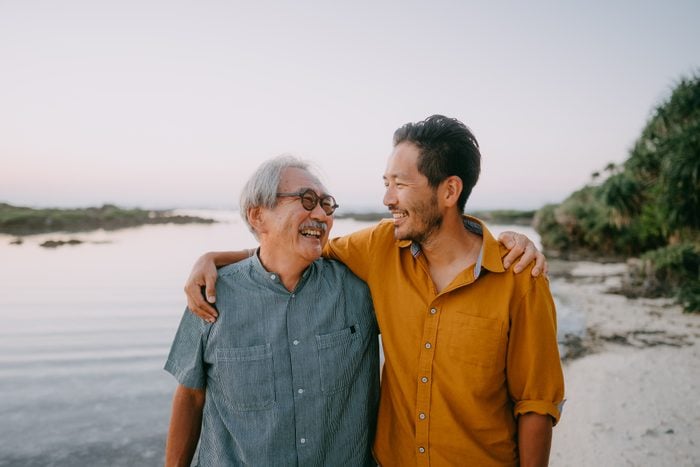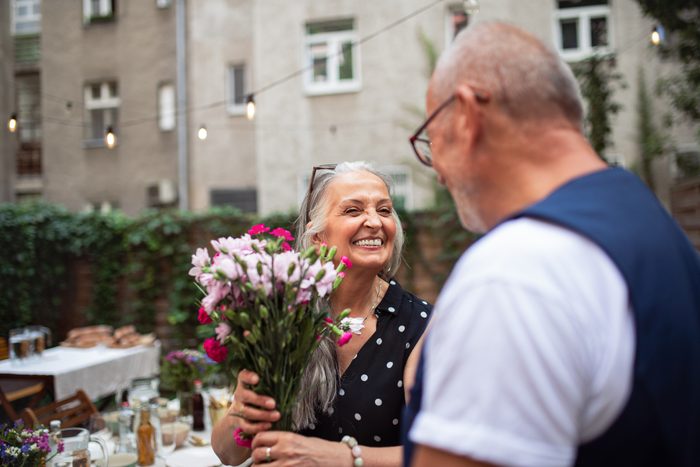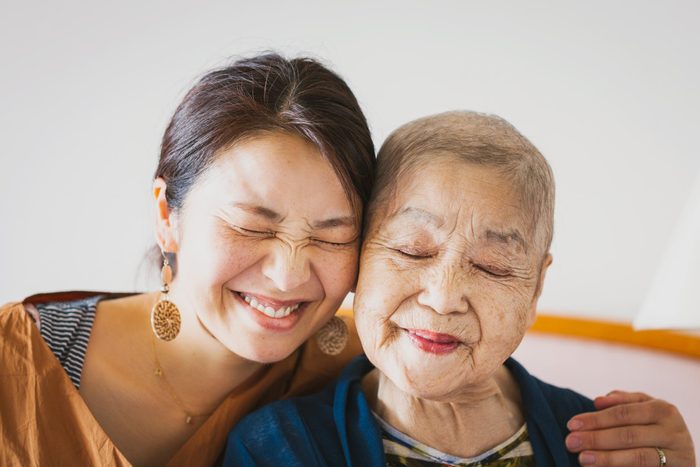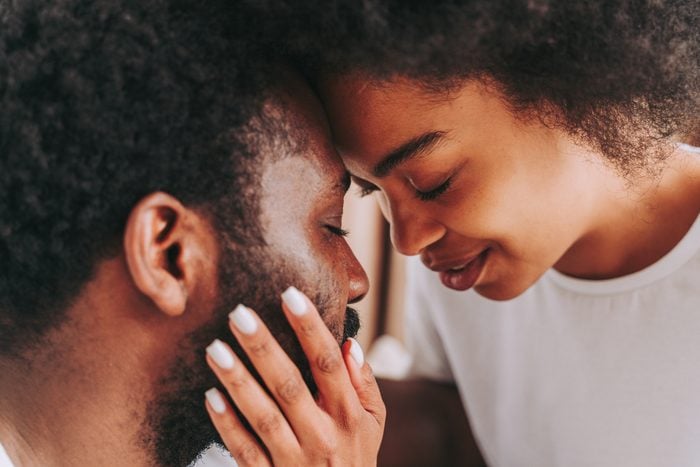
Do you remember the last time you felt appreciated? Maybe your manager gave you a pat on the back for your work on a big project, or you received an unexpected text message from a friend who thanked you for giving them advice.
Whatever the situation, appreciation feels good…and, as it turns out, it’s actually good for your health. In fact, expressing or receiving appreciation triggers an actual chemical reaction in the brain. Just like when a mother holds a baby or a loved one gives you a hug, a person who gives or receives a genuine thank you experiences the release of oxytocin. When oxytocin is released, it “gives us this warm feeling,” says Dr. Jolanta Burke, PhD, a psychologist at the Centre for Positive Psychology and Health.
As we approach the time of year when we celebrate thanks the most, Dr. Burke unpacks specific ways experiencing gratitude is healthy for our relationships…and our own long-term wellness.

Gratitude brings you closer
Dr. Burke says if you want to feel closer to someone, thank them. Whether it’s your team at work, a neighbor, or even a stranger, telling someone you appreciate them builds connections and intimacy, Dr. Burke explains.
A Guide to Healthy Relationships (and How to Spot Unhealthy Ones)

Gratitude fights off loneliness
Psychologists who led a 2014 study concluded that the oxytocin we experience from gratitude “is associated with solidifying the glue that binds adults into meaningful and important relationships.”
Conversely, someone who doesn’t pause and make the effort to feel and express thanks is probably more likely to experience loneliness, Dr. Burke says. “Lack of gratitude could make others feel like they are not contributing much to your life. It can be particularly damaging if they express gratitude towards the things you do, and you don’t reciprocate.”
She adds that failing to notice the good others do, and acknowledging it, can ultimately lead to friends and loved ones drifting away.
How to Keep Loneliness and Isolation from Harming Your Health

Gratitude can help turn a bad situation around
Gratitude can help shift the mood in the room. For example, when you’re arguing with your partner, you might be focused on what’s not working in your relationship and stewing over what you want to change about the other person, Dr. Burke says.
On the other hand, “You can flex your thinking toward looking at the situation and at your partner from a perspective of what is good about them, what you are grateful for.” From this, “You will send them a message that it is not all bad, that you can see the side that you love about them, this may relax them and turn your argument toward a reconciliatory direction,” Dr. Burke says.
This change in thinking can help remind you what you appreciate about your partner despite the disagreement. And focusing on gratitude in relationships can help prevent you from saying something you might later regret.

Gratitude can make life feel better
A handful of studies looked at people who engaged in a gratitude exercise, such as writing thank-you notes or taking the time to “count their blessings.” Those who made time to be thankful were found to have higher life satisfaction than those who didn’t engage in gratitude exercises.

Gratitude helps reduce anxiety
Spending time writing about things you’re thankful for might reduce signs of anxiety. In a 2014 study, people who were waiting for their mental health treatment to begin either completed gratitude writing prompts or underwent a placebo treatment. Those who practiced gratitude indicated reduced feelings of anxiety. The study suggests that showing gratitude can be an ongoing practice to help ease anxious feelings.

Gratitude helps reduce inflammation
A gratitude practice showed to reduce inflammation, a marker for heart disease and other illnesses. A 2021 study looked at middle-aged women, a demographic that tends to have higher levels of inflammation in response to stress. The women who took part in weekly gratitude writing prompts saw their markers for inflammation decrease. So one way to reduce inflammation might be to carve out time to meditate each day about someone or something you’re grateful for.
Eating This Nut Will Help Your Gut and Reduce Inflammation, New Study Says

Gratitude can improve sleep quality
A 2009 study compared women who ranked low on a scale measuring gratitude as a personality trait to women who ranked higher on the scale. The researchers found that women who were grateful slept better and were less likely to lie awake with worrying or negative thoughts at night. The more grateful women were also more likely to fall asleep to positive thoughts.
Can’t Sleep? A New Study Found This Solution Was More Powerful Than Melatonin

But… what if you’re not good at expressing gratitude in your relationships?
“It is challenging for people to express gratitude when they are not used to it,” Dr. Burke says. She offers suggestions for getting started communicating gratitude in relationships:
- Take time every day to think about what went well. “This way, you will start noticing good things around you, even in tricky situations and on bad days. Soon, it will become natural to see them.”
- Think about what your life would be like without certain people in it.
- If you express yourself better in writing, take a few minutes to write a postcard or type out a thank-you email. “Once you are ready, say it out loud,” Dr. Burke suggests. “Thank people for what they did and be as specific as you can.”
Follow The Healthy on Facebook, Instagram, and Twitter. Keep reading:
